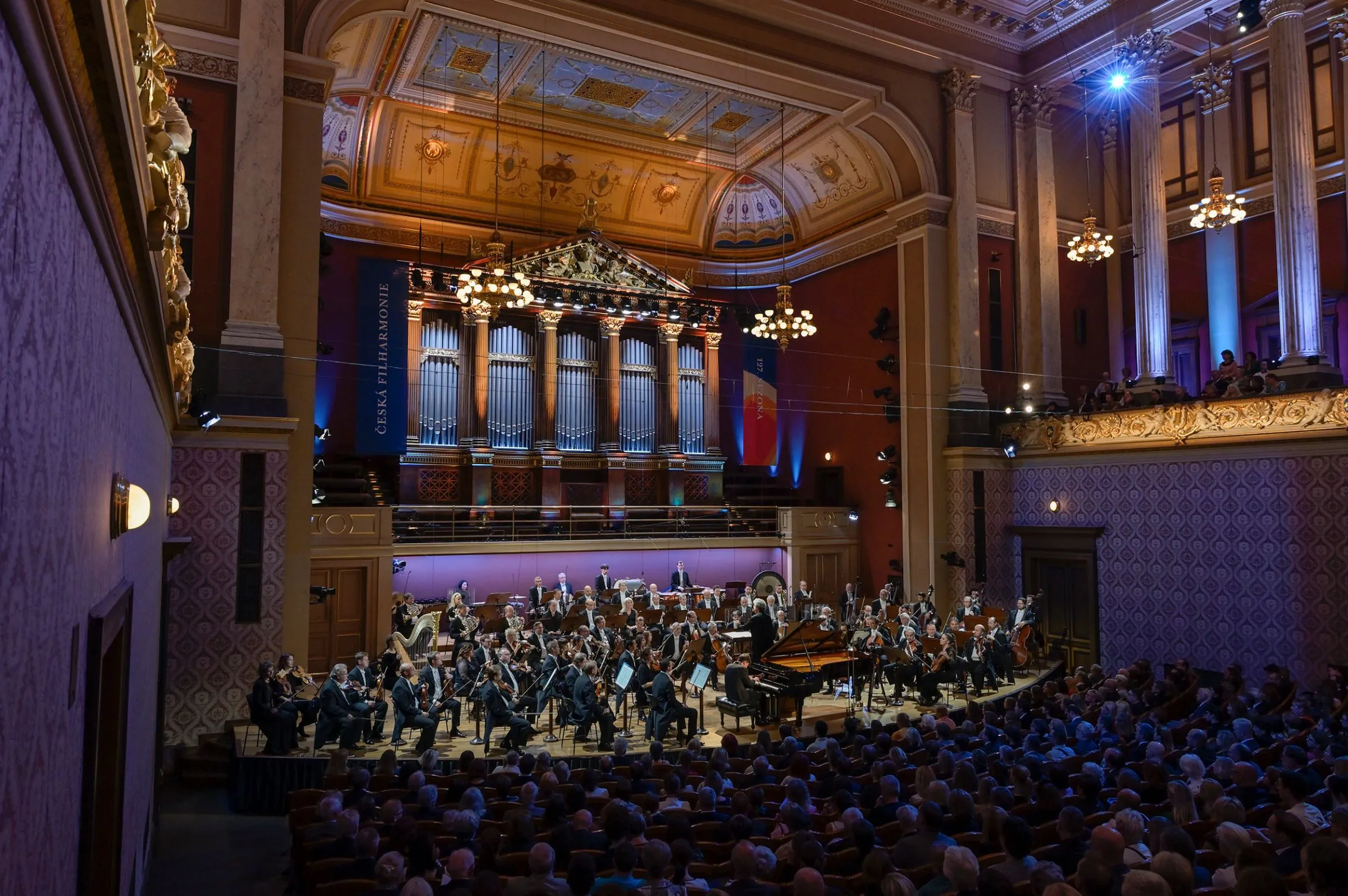The ultimate immersion in Dvořák: the Czech Philharmonic’s new season
by Anastasia

The Czech Philharmonic began life as the resident orchestra of the Prague National Theatre: this coming season will mark the 130th anniversary of its 1894 founding. But its real “christening” came in 1896, when the orchestra performed its first standalone concert under the baton of Antonín Dvořák, in a programme that included his Ninth Symphony. Since that time, the orchestra and composer have maintained an extremely close association.
It’s fitting, then, that this forthcoming season from the Czechs would present something like the ultimate in Dvořák immersion. The enduring popularity of Dvořák’s music owes something to its approachability – Dvořák was himself a working musician of the Orchestra of the Provisional Theatre (so-called because the National Theatre had yet to be built).
The autumn season opens with a trio of all-Dvořák programmes, led by chief conductor Semyon Bychkov. Each programme features a different high-calibre soloist. On the last weekend of September, Augustin Hadelich joins the orchestra for the Violin Concerto, which is paired with the Eighth Symphony. A week later in October, cellist Pablo Ferrández joins for the Cello Concerto in B minor, paired with the Seventh Symphony. And then, the following weekend, Sir András Schiff joins for the Piano Concerto, paired with the Ninth Symphony. Each concert is begun with one of a trio of orchestral overtures Dvořák wrote in the 1890s.
One could hardly ask for a better introduction to Dvořák. This is some of his most essential and well-regarded orchestral and concertante music. The passion and formal weight of the Seventh Symphony is contrasted by the ease and grace of the Eighth, and the populism, drama and tunefulness of the Ninth. For the orchestra this is deeply familiar music, their home idiom, and better performances of this music are unlikely to be found anywhere else. (The programmes with Hadelich and Schiff will also be presented at the Wiener Konzerthaus in March.)
Dvořák’s famous Slavonic Dances make an appearance in November, with guest conductor Sir Antonio Pappano. They are paired with an unusual choral-orchestral work by Brahms, Nänie, which sets a funereal text from Schiller. Brahms’ and Dvořák’s affinities and mutual admiration were strong, as was their regard for Mendelssohn, whose Violin Concerto will also be performed by Janine Jansen on this occasion.
A few rarities of Czech repertoire are also on offer this season – one such is Martinů’s one-act surrealist French-language retelling of the Minotaur myth, Ariane, completed in 1958. Performed in concert with the Prague Philharmonic Choir and led by Tomáš Netopil, this will be a great opportunity to bathe in the clear spring water of Martinů’s neoclassicism, adroitly paired on this occasion with Mozart. Fans of Poulenc and Auric will enjoy this piece.
Jazz-infused Gallic flavours continue the following weekend with the visit of that most essential French pianist, Pierre-Laurent Aimard, to perform Ravel’s sparkling G major Piano Concerto. Paired with the eroticism of Debussy’s Prélude à l’après-midi d’un faune and Ravel’s colourful orchestration of Mussorgsky’s Pictures at an Exhibition, Ravel’s concerto was the most-performed work in our 2022 listings, and with a soloist as effortlessly graceful as Aimard, one can understand why.
Jakub Hrůša will be at the Rudolfinum for a New Year’s concert which also features Dvořák in pride of place, alongside other bonbons of the Czech repertory. Notably, Smetena’s overture to The Bartered Bride, fiendish and whirling and feared by woodwind players everywhere. No other orchestra in the world does it better.
Mahler was a great fan of The Bartered Bride, conducting the United States operatic premiere, and even included a quote from the overture in his First Symphony. In the new year Semyon Bychkov returns to conduct Mahler’s Third Symphony – perhaps intimidating in scale, but Mahler holds the listener’s hand throughout. Bychkov is also a greatly adept Mahlerian.
Mahler fans should stick around until February when Jakub Hrůša presents selections from Das Knaben Wunderhorn, notably those with military themes (No. 13 Revelge is a particularly terrifying highlight). These are paired with an unusual work by Czech composer Ondřej Kukal, The Mad Soldier’s Song, and Honegger’s extraordinary, deathly Third Symphony “Liturgique”, a powerful work that really ought to be heard.
The Dvořákiana continues with the return of Sir András Schiff in February, with his Wind Serenade Op.44, paired with Beethoven’s First Piano Concerto, led by Schiff from the piano. The concert concludes, as it should, with Mozart’s “Prague” Symphony – the Czech capital was among the most welcoming to Mozart during his lifetime.
Janáček fans should not despair at being crowded out by Dvořák this season: in April Hrůša conducts The Cunning Little Vixen in concert, always a treat. Hrůša will also perform Janáček in February, namely the overture Jealousy (Žárlivost), the original opening to Jenůfa. This is a curtain-raiser for Lukáš Vondráček performing Prokofiev’s virtuosic Second Piano Concerto. The concert is concluded with Josef Suk’s large-scale choral-orchestral tone poem Ripening (Zrání). Relatively unknown to English-speaking audiences, this piece is of great vitality, and forms a fascinating bridge between Dvořák (Suk’s teacher and father-in-law), and later works of Janáček.
Other highlights later in 2024 include a visit from Sir Simon Rattle and Yuja Wang (performing Rachmaninov and Bruckner), Bychkov leading Shostakovich’s Seventh and Beethoven’s Ninth, and a visit from the great Emanuel Ax, performing Mozart, together with Franz Welser-Möst leading Sibelius – which will be worth catching.
Source: https://bachtrack.com



